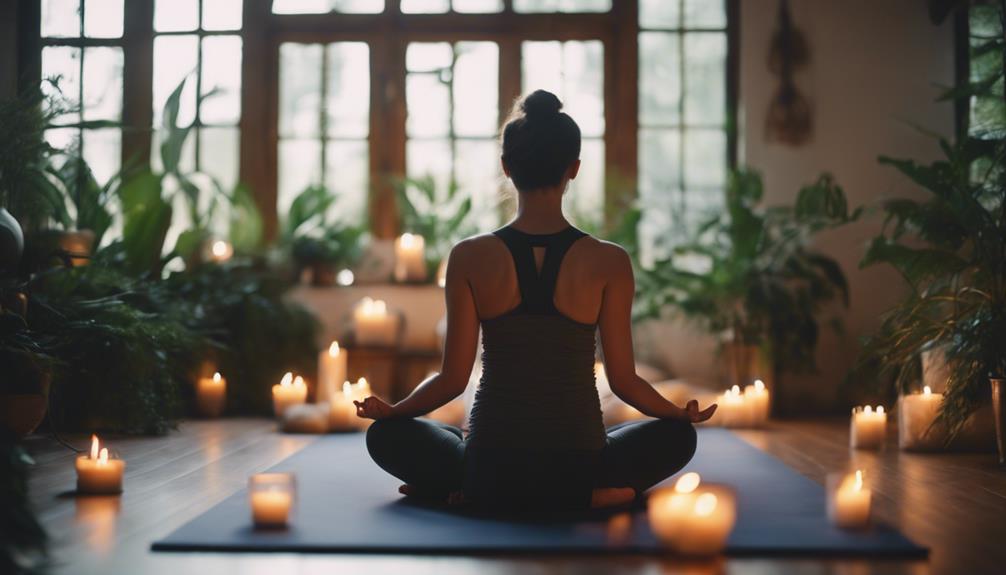Anxiety is a common mental health issue affecting millions of people worldwide. As individuals seek effective ways to manage their anxiety, many turn to yoga as a potential solution. But does yoga work for anxiety? In this blog post, we will delve into the relationship between yoga and anxiety relief, exploring the science, techniques, and personal experiences that demonstrate the effectiveness of yoga in managing anxiety symptoms.
Understanding Anxiety and Its Impact
Anxiety is characterized by feelings of worry, nervousness, or fear that can interfere with daily activities. It can manifest in various forms, including generalized anxiety disorder, panic disorder, social anxiety, and others. The impact of anxiety on individuals can be debilitating, leading to physical symptoms such as increased heart rate, muscle tension, and fatigue. Traditional treatments often include therapy and medication, but many individuals are seeking holistic approaches to complement their treatment. This is where yoga comes in as a potential tool for relief.
The Connection Between Yoga and Mental Health
Yoga is an ancient practice that combines physical postures, breath control, meditation, and ethical principles. Research has shown that yoga can positively impact mental health by promoting relaxation, improving mood, and reducing stress. Studies indicate that practicing yoga can lead to decreased levels of cortisol, the stress hormone, and increase the production of serotonin, a neurotransmitter that contributes to feelings of well-being. This biochemical response highlights the potential of yoga as an effective method for managing anxiety.
Scientific Evidence on Yoga for Anxiety Relief
Numerous studies have examined the effects of yoga on anxiety. A systematic review published in the journal *Psychological Bulletin* found that yoga practice is associated with reduced symptoms of anxiety and depression. Another study involving participants with generalized anxiety disorder found that those who practiced yoga regularly reported significantly lower anxiety levels compared to those who did not participate in any form of physical activity. These findings suggest that yoga can serve as a valuable adjunct to traditional treatments for anxiety.
Yoga Techniques That Help Alleviate Anxiety
There are various yoga techniques specifically designed to help individuals cope with anxiety. These techniques often focus on breath control, mindfulness, and gentle movement. Some effective practices include:
1. Pranayama (Breath Control): Deep, controlled breathing can help calm the nervous system and reduce feelings of anxiety. Techniques like diaphragmatic breathing and alternate nostril breathing promote relaxation and mental clarity.
2. Restorative Yoga: This gentle style of yoga involves holding poses for extended periods, allowing the body to relax deeply. Restorative yoga encourages a sense of safety and calm, making it an excellent practice for those dealing with anxiety.
3. Mindfulness Meditation: Incorporating mindfulness meditation into a yoga practice can help individuals stay present and centered, reducing ruminative thoughts often associated with anxiety.
4. Gentle Flow: A slow, mindful flow of poses can help release tension in the body while promoting mental calmness. Gentle movements encourage a mind-body connection that is essential for anxiety relief.
Creating a Consistent Yoga Practice for Anxiety Management
To fully experience the benefits of yoga for anxiety, consistency is key. Establishing a regular yoga practice can help reinforce the calming effects of the practice. Here are some tips for creating a sustainable yoga routine:
1. Set Realistic Goals: Start with short sessions, gradually increasing the duration and frequency as you become more comfortable. Aim for at least 20-30 minutes of practice several times a week.
2. Choose the Right Environment: Create a calming space to practice yoga, free from distractions. Consider using calming scents, soft lighting, or soothing music to enhance your experience.
3. Listen to Your Body: Pay attention to how your body feels during practice. Modify poses as needed and prioritize comfort over perfection.
4. Integrate Mindfulness: Focus on your breath and sensations in your body during practice. This mindfulness approach can help ground you and reduce anxiety in daily life.
Personal Experiences: Real-Life Stories of Yoga’s Impact on Anxiety
Many individuals have shared their personal experiences with yoga and how it has helped them manage anxiety. For instance, Sarah, a 32-year-old marketing professional, struggled with anxiety for years. After incorporating yoga into her routine, she noticed a significant reduction in her anxiety levels. “Yoga taught me to breathe and be present,” she shares. “It’s like a reset button for my mind.” Such testimonials highlight the transformative power of yoga in fostering resilience and emotional balance.
Complementing Yoga with Other Anxiety Management Strategies
While yoga can be an effective tool for managing anxiety, it is essential to recognize that it works best as part of a comprehensive approach to mental health. Combining yoga with other strategies, such as therapy, medication, and lifestyle changes, can enhance its effectiveness. Consider integrating practices like journaling, mindfulness, and healthy lifestyle choices, such as a balanced diet and regular exercise, to create a holistic approach to anxiety management.
Conclusion: Embracing Yoga as a Pathway to Anxiety Relief
So, does yoga work for anxiety? The evidence suggests that it can be a valuable practice for many individuals seeking relief from anxiety symptoms. By promoting relaxation, reducing stress hormones, and fostering a mind-body connection, yoga offers a holistic approach to mental health. Whether you are a seasoned practitioner or a beginner, incorporating yoga into your life can lead to a deeper understanding of yourself and a greater sense of calm. As you explore the world of yoga, remember that everyone’s journey is unique, and finding the right techniques that resonate with you will be key to your success in managing anxiety.
—
Incorporating yoga into your daily routine can be a transformative experience that contributes to your overall well-being. Whether you are looking for a new coping mechanism or simply want to enhance your mental health, yoga offers a pathway toward relief and resilience. Start your journey today and discover the calming power of yoga in your life!Where Health Meets Happiness
